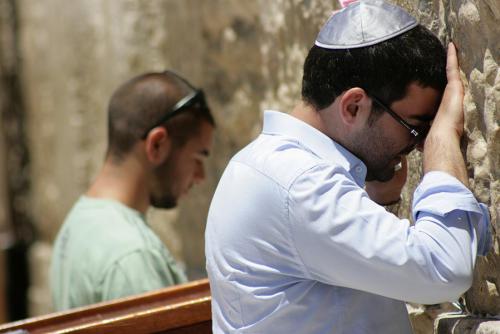What is Religious Discrimination?
Religious discrimination involves treating a person unfavorably because of their religious beliefs. The law protects not only people who belong to traditional, organized religions, such as Buddhism, Christianity, Hinduism, Islam, and Judaism, but also others who have sincerely held religious, ethical or moral beliefs. Religious discrimination can also involve treating someone differently because that person is married to (or associated with) an individual of a particular religion.
Common Types of Religious Discrimination
The United States Holocaust Memorial Museum (USHMM) What is Antisemitism? page (USHMM) defines antisemitism as "prejudice against or hatred of Jews." The Holocaust was history’s most extreme example of antisemitism; however, antisemitism dates back to the Middle Ages and continues today with antisemitic violence and Holocaust Denial.
What is Holocaust Denial?
The USHMM Holocaust Denial and Distortion page defines Holocaust denial as "any attempt to negate the established facts of the Nazi genocide of European Jews. [A form of antisemitism,] Holocaust denial and distortion generally claim that the Holocaust was invented or exaggerated by Jews as part of a plot to advance Jewish interests. These views perpetuate long-standing antisemitic stereotypes, hateful beliefs that helped lay the groundwork for the Holocaust. Holocaust denial, distortion, and misuse all undermine the truth and our understanding of history."
The Institute for Social Policy and Understanding states that Islamophobia manifests in many different anti-Muslim activities that fall under three different categories: structural, individual, and dialectic.
- Structural Islamophobia is reflected in institutionalized anti-Muslim legislation and further perpetuated through dialectical Islamophobia via policing, bias in media representation and in the legal system, and the use of anti-Muslim rhetoric and statements by political candidates and elected or appointed officials.
- On a community level, the emergence of anti-Muslim hate groups, anti-Muslim rallies, organized and anti-mosque activity, including opposition to mosque construction or expansion, vandalism, and opposition to refugee resettlement, demonstrate Islamophobia.
- At the private individual level, Islamophobia takes the form of harassment and violence.
2019 U.S. Religious Bias Statistics
In 2019, 1,650 religious bias offenses were reported, accounting for 21.4% of the total single-bias incidents reported to the FBI. For the full religious bias stats, visit the 2019 FBI Hate Crimes Report.
Resources for Allies

"Translate Hate" Antisemitism Resource
The American Jewish Committee created the Translate Hate resource to educate people on how to identify antisemitism. The page includes a quiz, interactive glossary of terms, and steps on how to report antisemitism.

Islamophobia Toolkit
Created by Institute for Social Policy and Understanding (ISPU), this toolkit serves as a rapid response toolkit for immediate actions to address and stymie Islamophobia and covers proactive long-term opportunities to address systemic challenges.

Massachusetts Protections Against Hate Crimes
The Attorney General’s Office enforces the Massachusetts Civil Rights Act and protects against hate crimes, including threats, harassment, violence, and other bias-motivated conduct.
